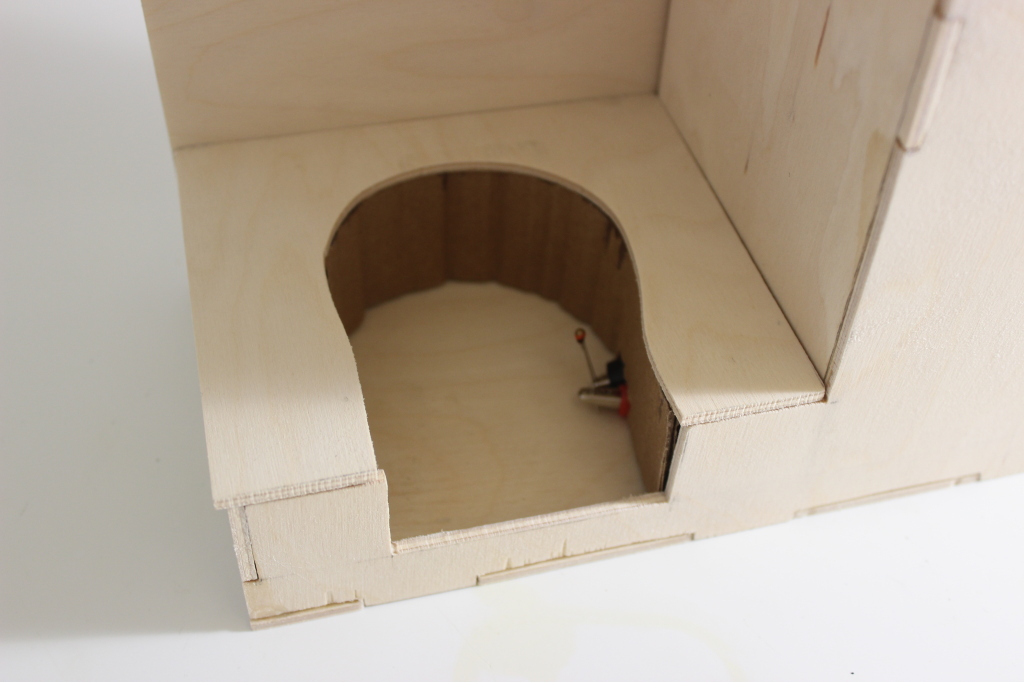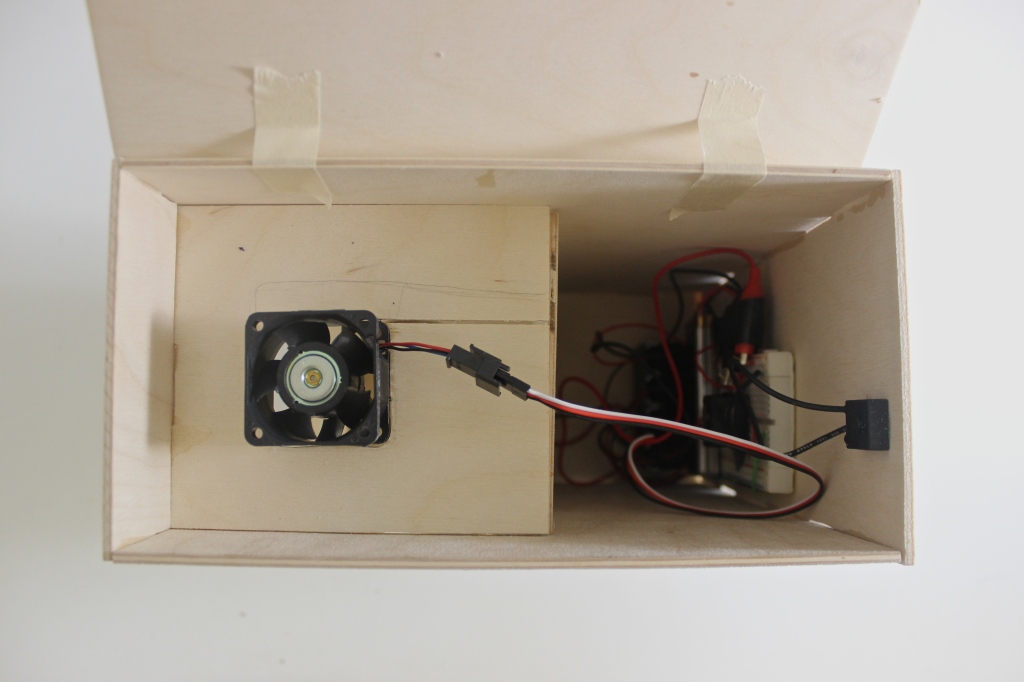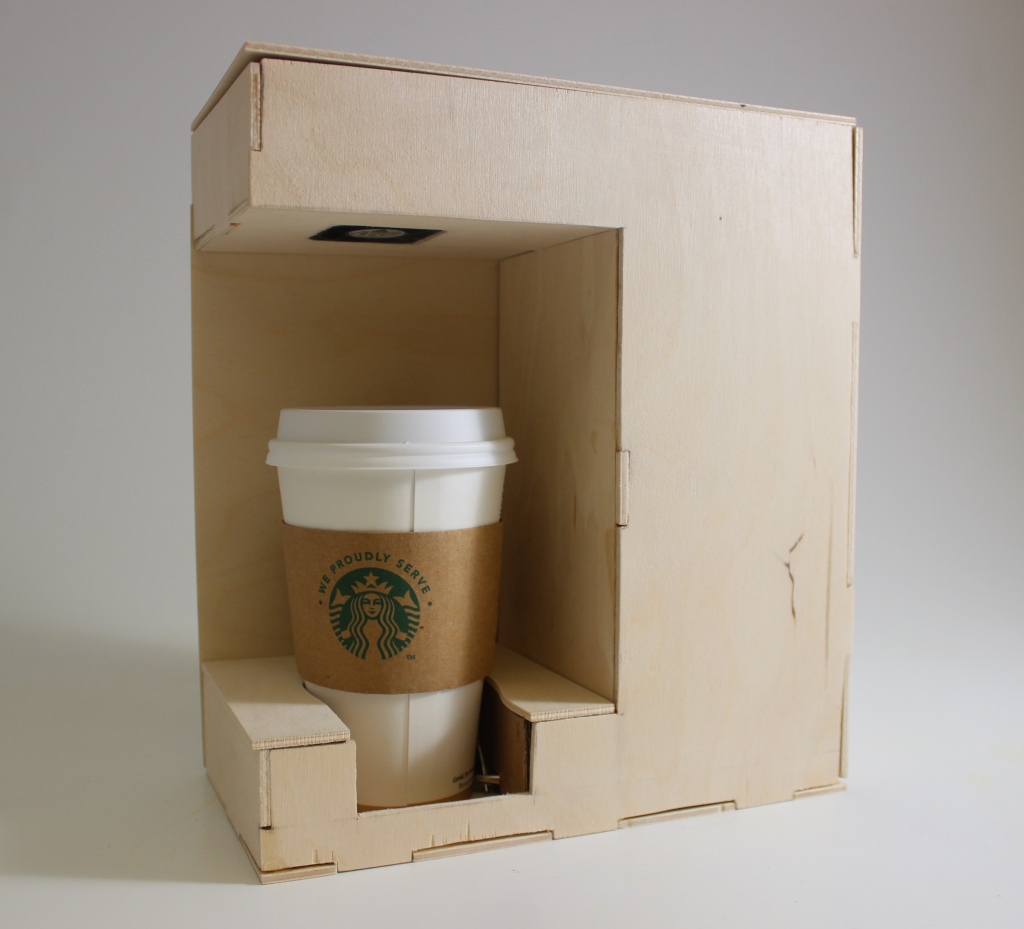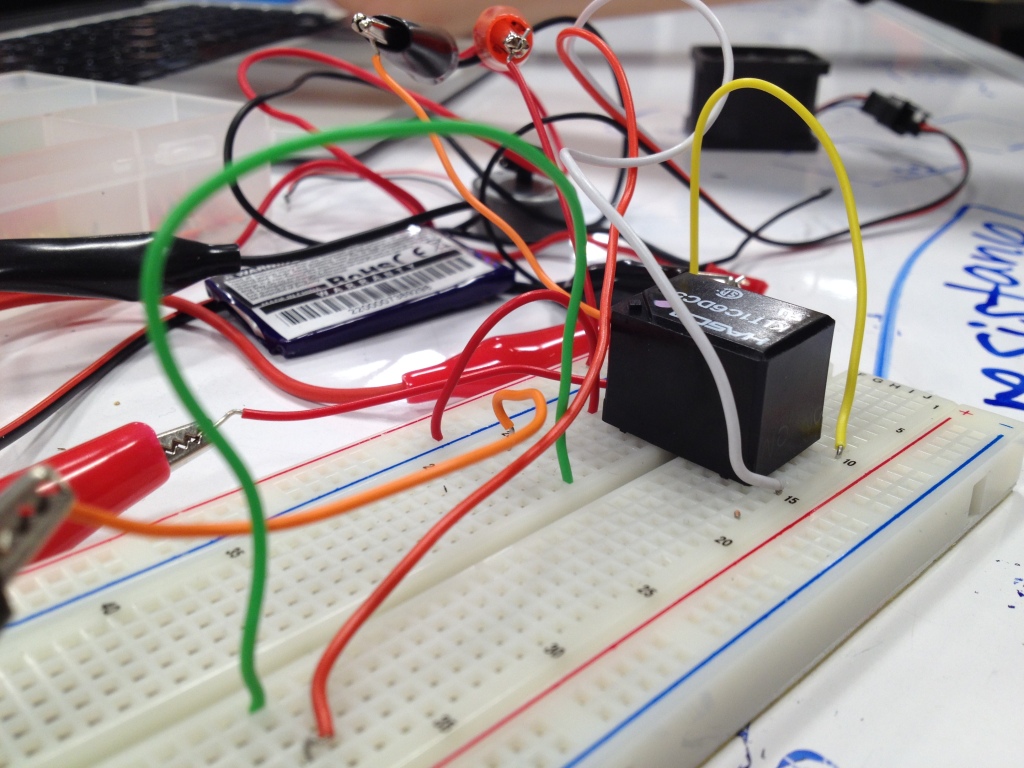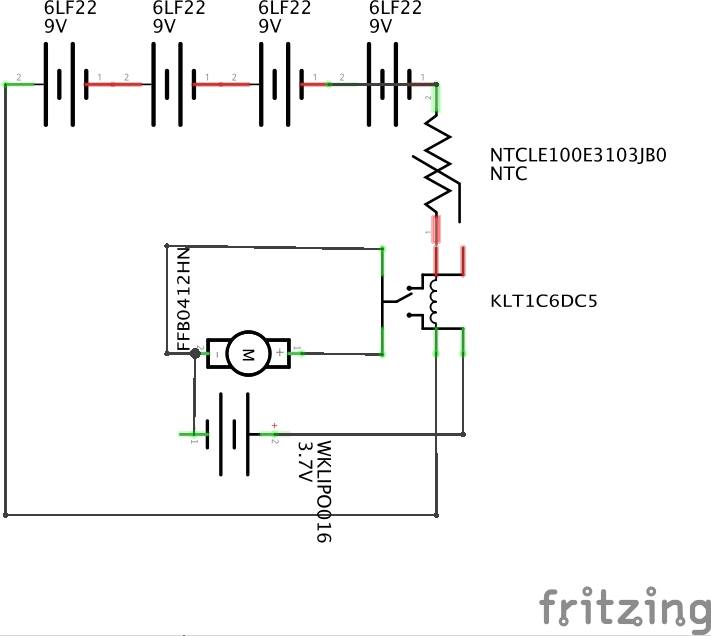1A-Basic Circuit-Coffee Cooler
|
Group Members: Sara Johnson, Ashley Lai, Zac Mau
Introduction While coffee is brewed near boiling temperatures, the optimal temperature to enjoy a hot drink is 70℃. At this lowered heat, your taste bud can register the full range of flavor profiles and avoid dangerous burns. To allow premium brewing while avoiding a long wait for your caffeine, we have created the Coffee Cooler. A paper coffee cup is inserted into the cup compartment with the lid removed, and if a temperature above 70℃ is registered, the mounted fan turns on, cooling the drink. We have create a one-in-one-out system that is activated by the liquid’s temperature and outputs physical air circulation from the fan. The heat is registered by a thermistor, which electrically triggers a magnetized coil by increasing current flow. The switch allows an external battery to power the fan and cool the drink to the desired temperature. Technical Notes The temperature of the water is measured by at 10K thermistor through the coffee cup, which accurately transmits the drinker’s temperature because of the paper’s low specific heat capacity. Upon contact with the hot drink, the thermistor decreases in resistance of the thermistor decreases its resistance linearly byR = -kTbecause of its negative temperature coefficient . Reducing the resistance increases the current flow to a 5V relay, magnetizing the control coil and physically moving the relay’s internal switch. The switch completes the second circuit, allowing a 3.7V LiPO battery to power a brushless 40mm fan. PIECES tactile on-off switch 5V relay HASCO KLT1C6DC5 10K thermister 9V batteries 3.7V LiPO 1600mAh dc brushless fan FFB0412SHN ideal for cooling: 5-7v: solid wind, audible need at least 4.2 volts 3v – turns off specs: voltage: 4-13v current: .6 max, .5 ideal power: 6 watts Photos
|

